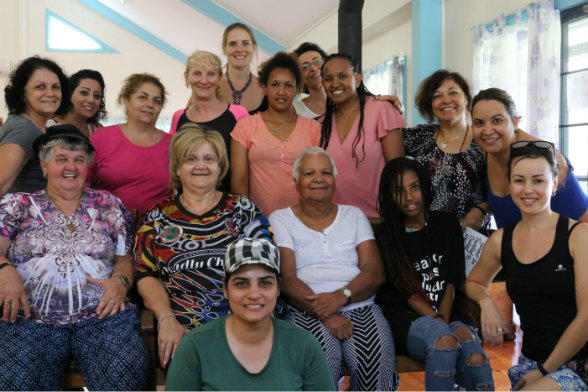access_community_services_sml.jpg

Attendees at a CALD Social Growth Project workshop
This Queensland Multicultural Month we’re showcasing some of the work that supports mental health, wellbeing and social inclusion among our community members from culturally and linguistically diverse backgrounds.
Many people who have experienced social or cultural isolation can face significant mental and emotional challenges.
Acknowledging this, Access Community Services led a series of workshops and retreats as part of the CALD Social Growth Project between December 2018 and March 2018. The project aimed to promote recovery, resilience and social inclusion for women from culturally and linguistically diverse (CALD) backgrounds and Aboriginal and Torres Strait Islander women experiencing mental illness.
The Queensland Mental Health Commission funded the project as part of its Stronger Community Mental Health and Wellbeing Grants Program.
Organisations like Access Community Services play a vital role in the arrival-to-autonomy journey for migrants and refugees. For Aboriginal and Torres Strait Islander peoples, the challenges, often borne out of displacement, can be similar to those experienced by migrants and refugees.
The project was designed around the Ngatana Luidha yarning circle framework, which takes participants through a process of deep healing and self-reflection. Aunty Debra Bennet, a Goorie woman with extensive experience working in mental health, was the project’s lead facilitator.
With participants from Syria, Afghanistan, Democratic Republic of the Congo, Eritrea, Liberia, Ethiopia, Sudan and Burundi, the project’s workshops included communication and self-reflection activities incorporating dance and music. One workshop activity encouraged women to draw and decorate their life experiences on a timeline and to highlight key moments in their lives when they were truly happy.
“For many women this was the first time they had ever thought deeply about their experiences or been able to reflect on happy times in their lives,” reported Annie Rutherford, Project Development Manager.
“The women, despite their cultural backgrounds, were able to share similar happy moments relating to their family, moving to Australia, finding a job and driving a car.
“Although the women perceived themselves as being very different, they were surprised to find similarities with other women from different cultural backgrounds.”
For many of the women, the opportunity to take time out to focus on self-care proved invaluable.
As one participant reflected, “I always believe what is coming will be better... I like that everyone lives happily and I would like to find a job. Happy family, happy life and leadership starts from home.”
The project will equip women with knowledge and connections to continue leadership, mentorship and advocacy work within their families and communities.
